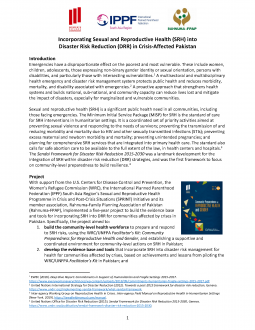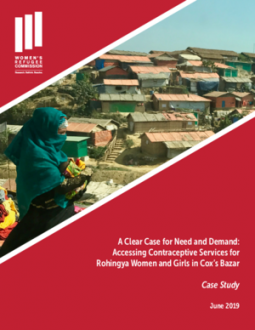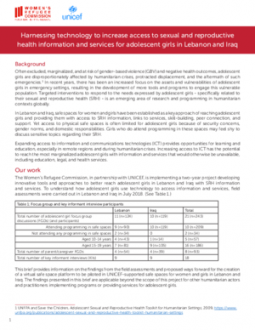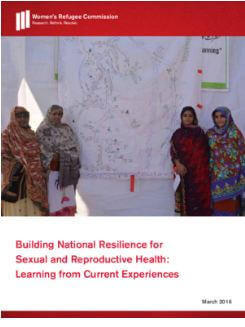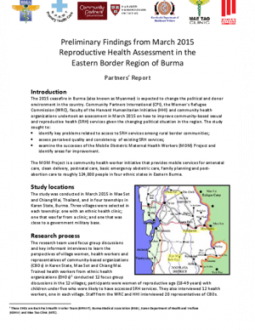
Expanding the Availability and Accessibility of Family Planning in Refugee Settings
Published | UpdatedLessons Learned from Programs in Afghan and Tigrayan Refugee and Host Communities in Pakistan and Sudan
Family planning is lifesaving. It is the standard of care in crisis-affected settings, as established in the Minimum Initial Service Package (MISP) for sexual and reproductive health. However, availability of and access to family planning in crisis-affected settings remains limited and uneven. In this project, the Women’s Refugee Commission (WRC) partnered with Rahnuma Family Planning Association of Pakistan and the Sudan Family Planning Association to improve the availability and accessibility of critical family planning services, and to meet the family planning needs of refugees and host communities in Pakistan and Sudan. Partners worked together to expand the availability of the full range of family planning methods and address barriers to accessing family planning, including among adolescents and youth and people with disabilities.
In addition to providing family planning services, Rahnuma Family Planning Association of Pakistan and the Sudan Family Planning Association trained health providers to improve their knowledge, attitudes, and practices around family planning service provision, including the full range of methods, and delivered community mobilization and demand generation programming to diverse community members.
Report
Virtual Knowledge Sharing Event
On July 22, 2024, the Women’s Refugee Commission, Rahnuma Family Planning Association of Pakistan, and the Sudan Family Planning Association held a virtual knowledge sharing event dedicated to sharing experiences and lessons learned from the project.


